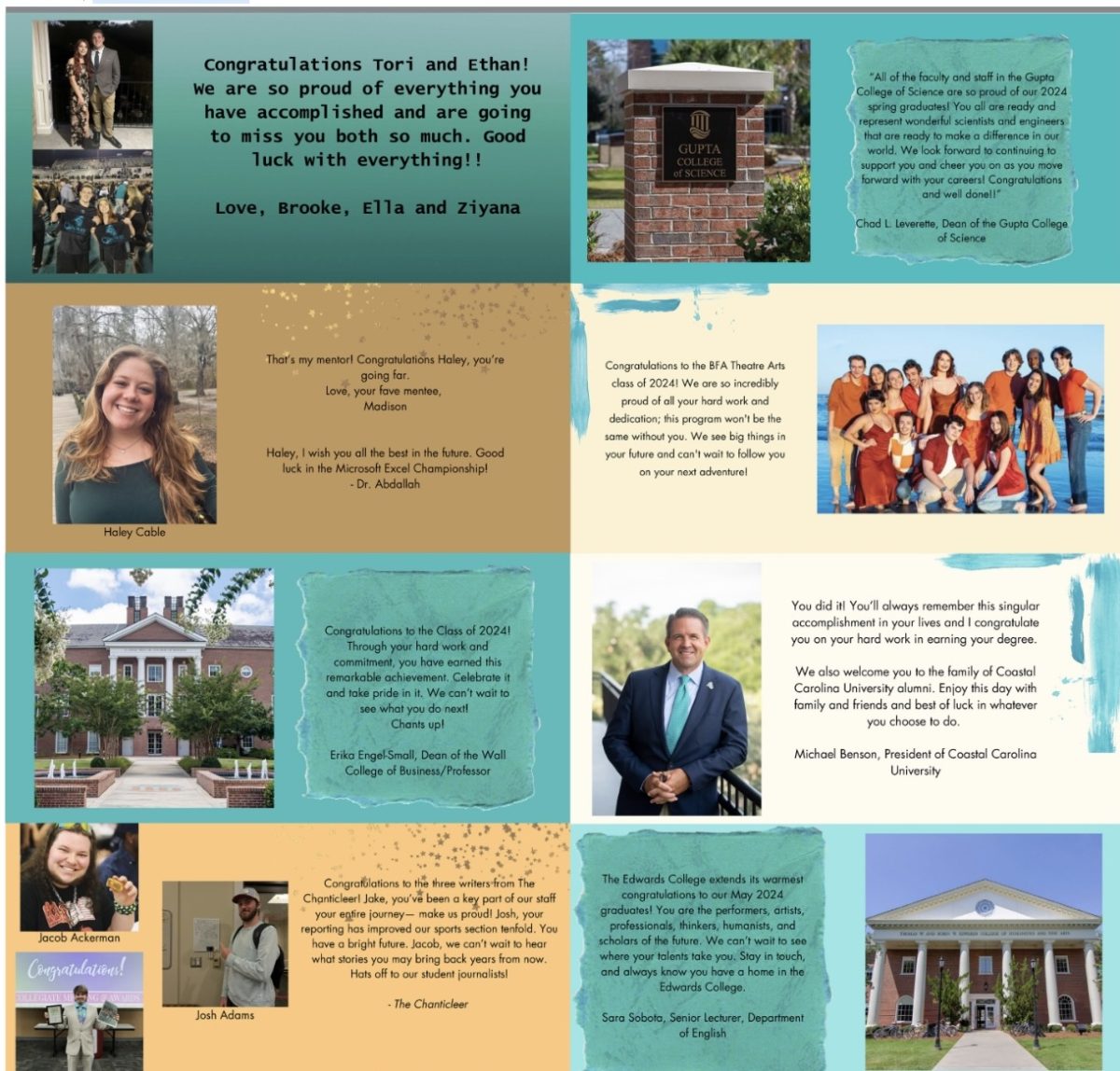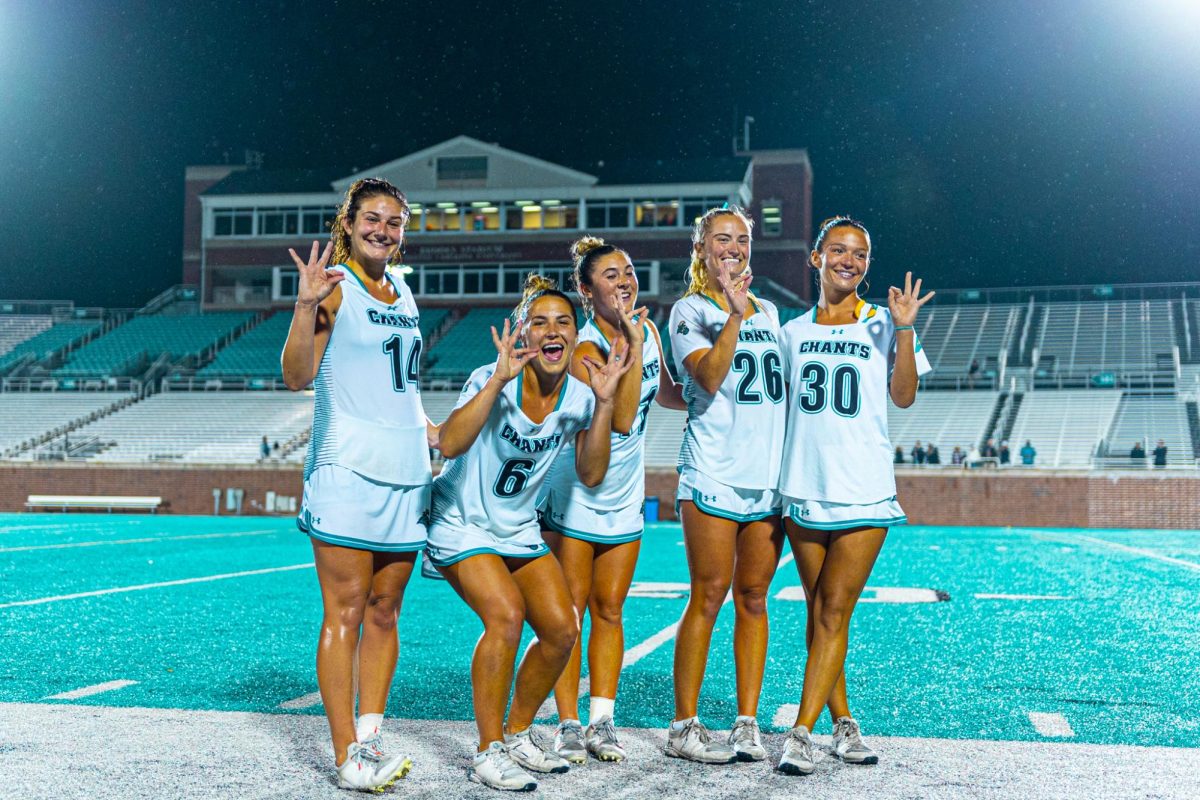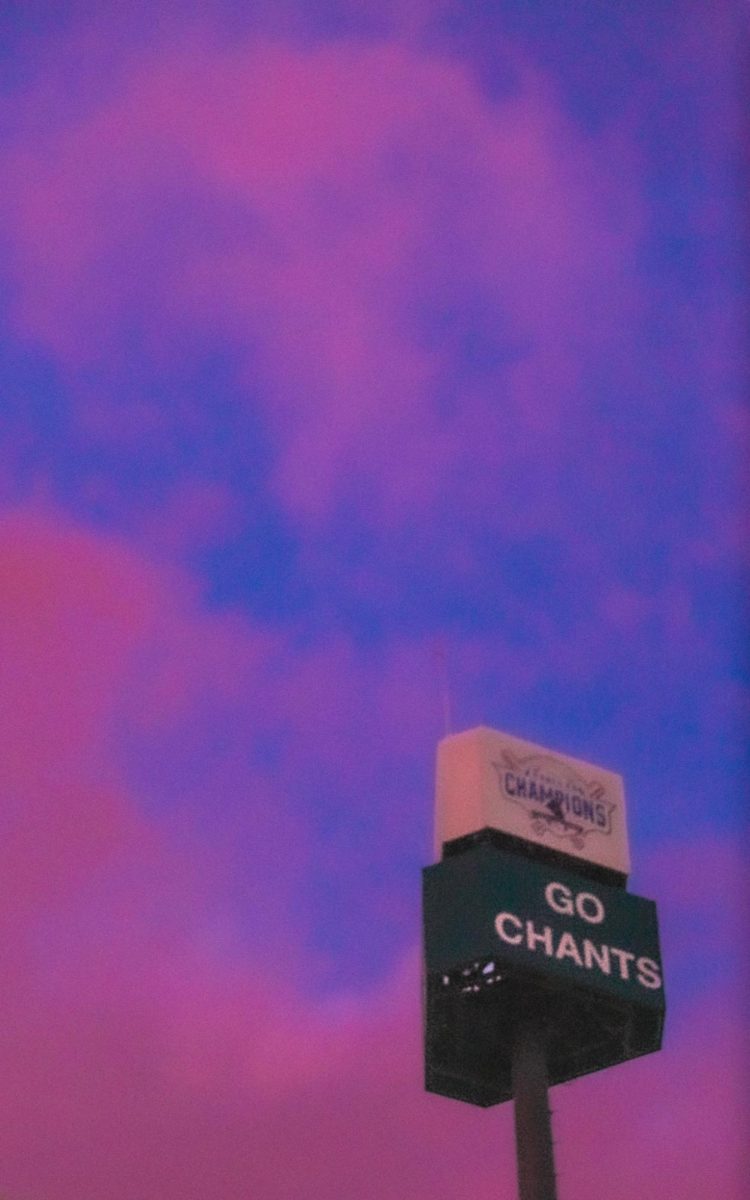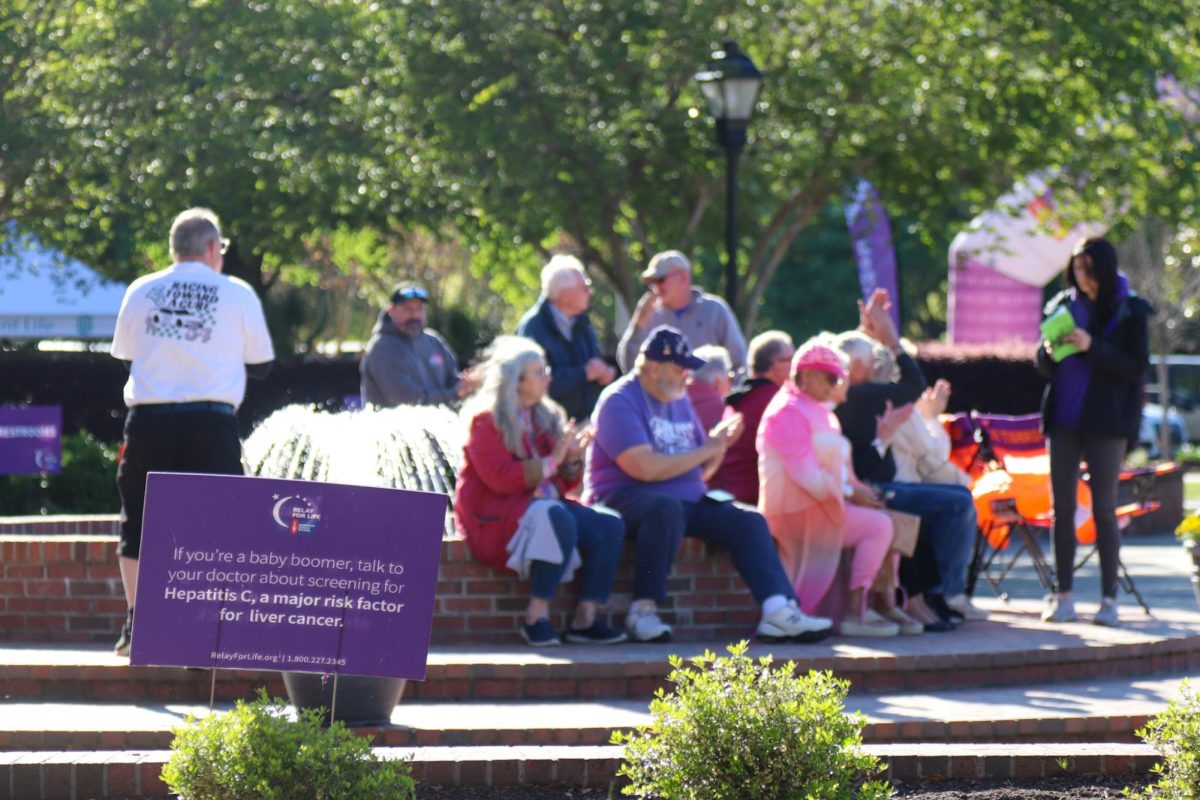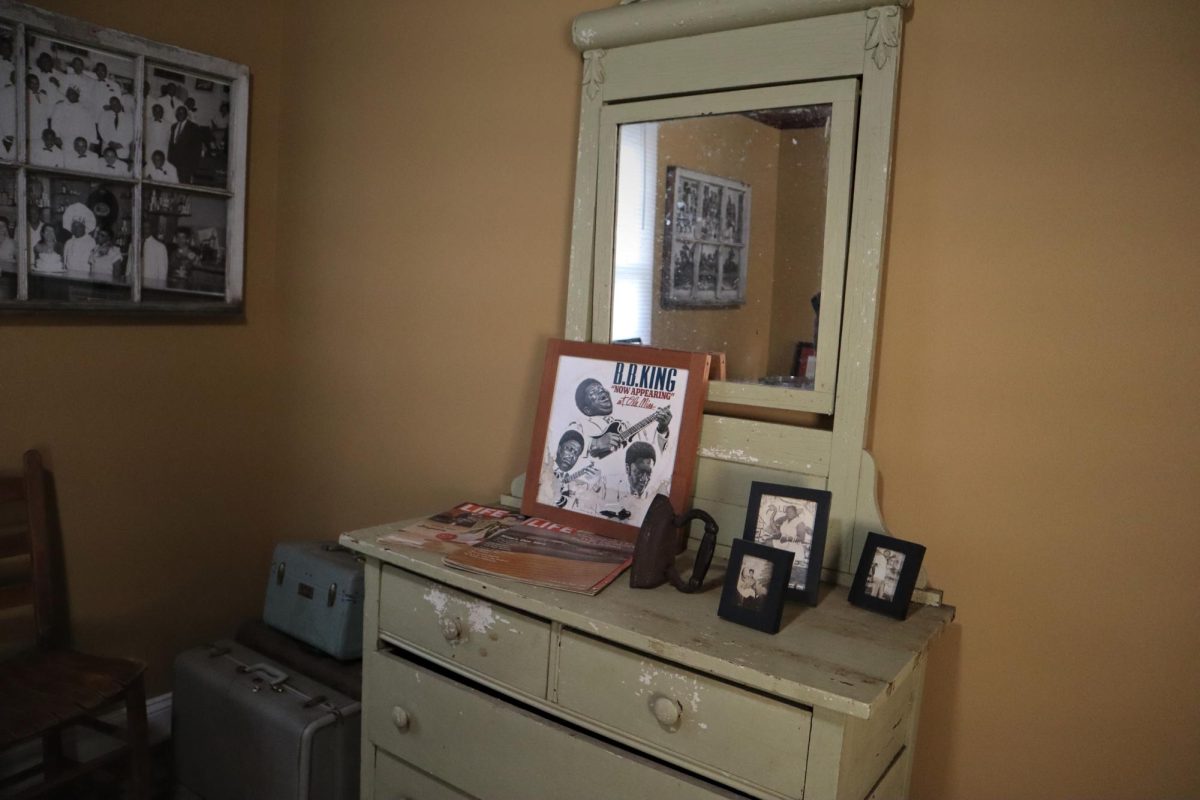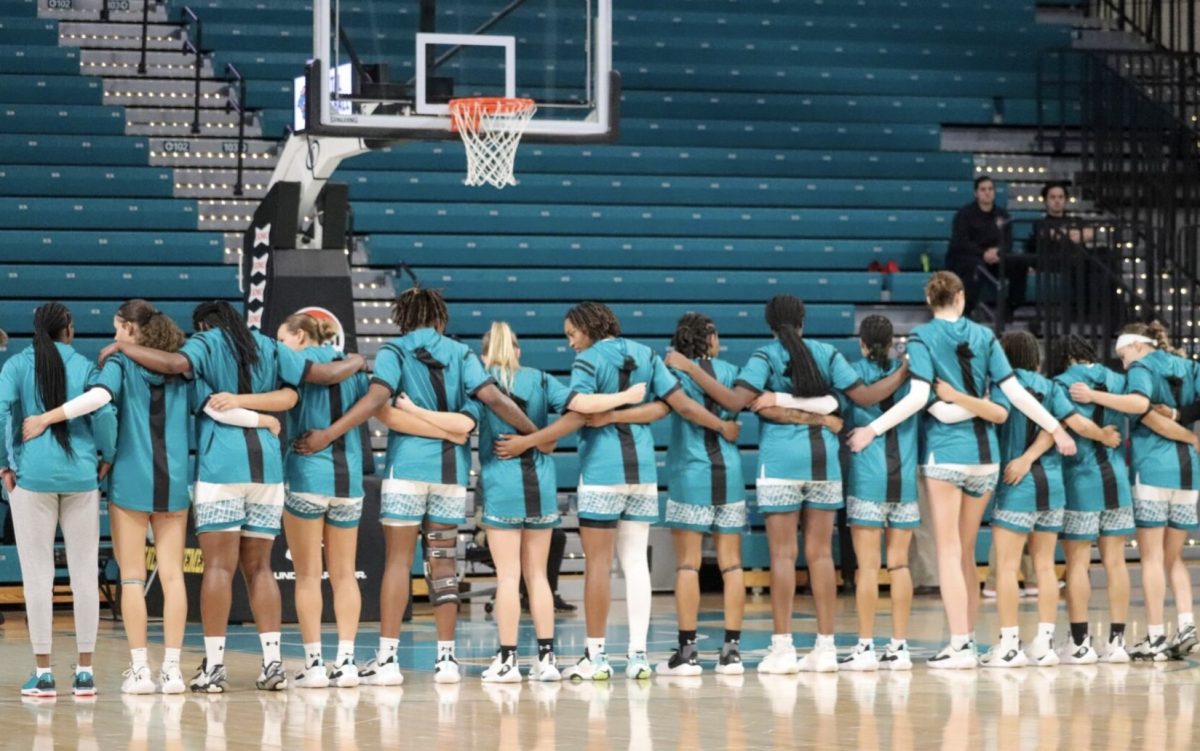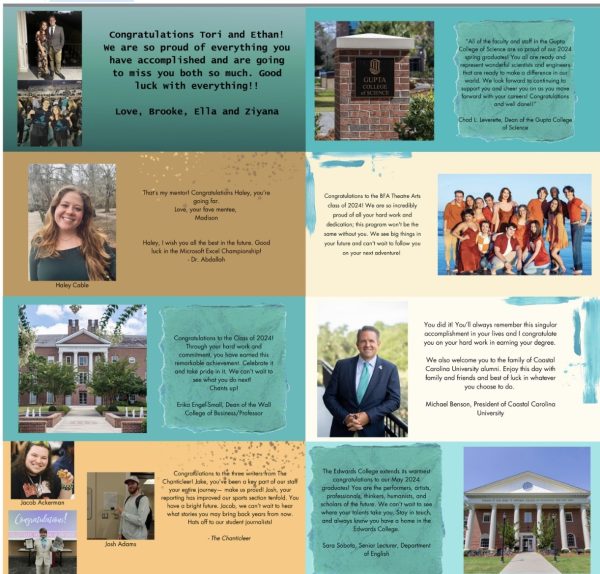Speaking to the world: Language instructors hosted event to talk to students about classes
Coastal Carolina University’s language instructors hosted a get-together in the Edwards Courtyard on Oct. 26 where students were able to speak to their current and future language instructors.
The event gave students the opportunity to meet their professors if they have not been able to, ask questions about language, and learn more about the language department at CCU. Students coming to this event were able to ask their burning questions and see what language they should partake in.
“I want students to come here and learn about the benefits of learning a language, whether it be Spanish, Italian, or the other five languages that we provide,” Italian Language Instructor Kevin Regan’Maggione said.
According to instructors Elaine Berard and Regan’Maggione, CCU students must take a language class to graduate. The first step for students is to take the placement test to see what level for any language they may fall into.
Coastal provides seven languages including Arabic, Italian, Spanish, Chinese, French, German and Russian. Students are able to take up as many languages as they choose to. Minoring in a language is also an option for students. “Students can learn that language goes with any major that you choose, and you can learn how to get retro credit from taking the placement test,” French Language Instructor Elain Berard said.
According to the Department of Languages and Intercultural Studies catalog on Coastal’s website, retroactive credit in Languages and Intercultural Studies (LIS) is intended for students who are interested in pursuing advanced language studies.
“It gives people the opportunity to see what’s being offered and it’s not just about learning foreign languages, but also how things are being seen culturally,” Kaden Cassidy, a fifth year CCU student, said.
Students are recommended to take the placement test and to speak with an adviser beforehand to see what language classes are available. Studying abroad is also an option to learn more about the culture behind the languages.
